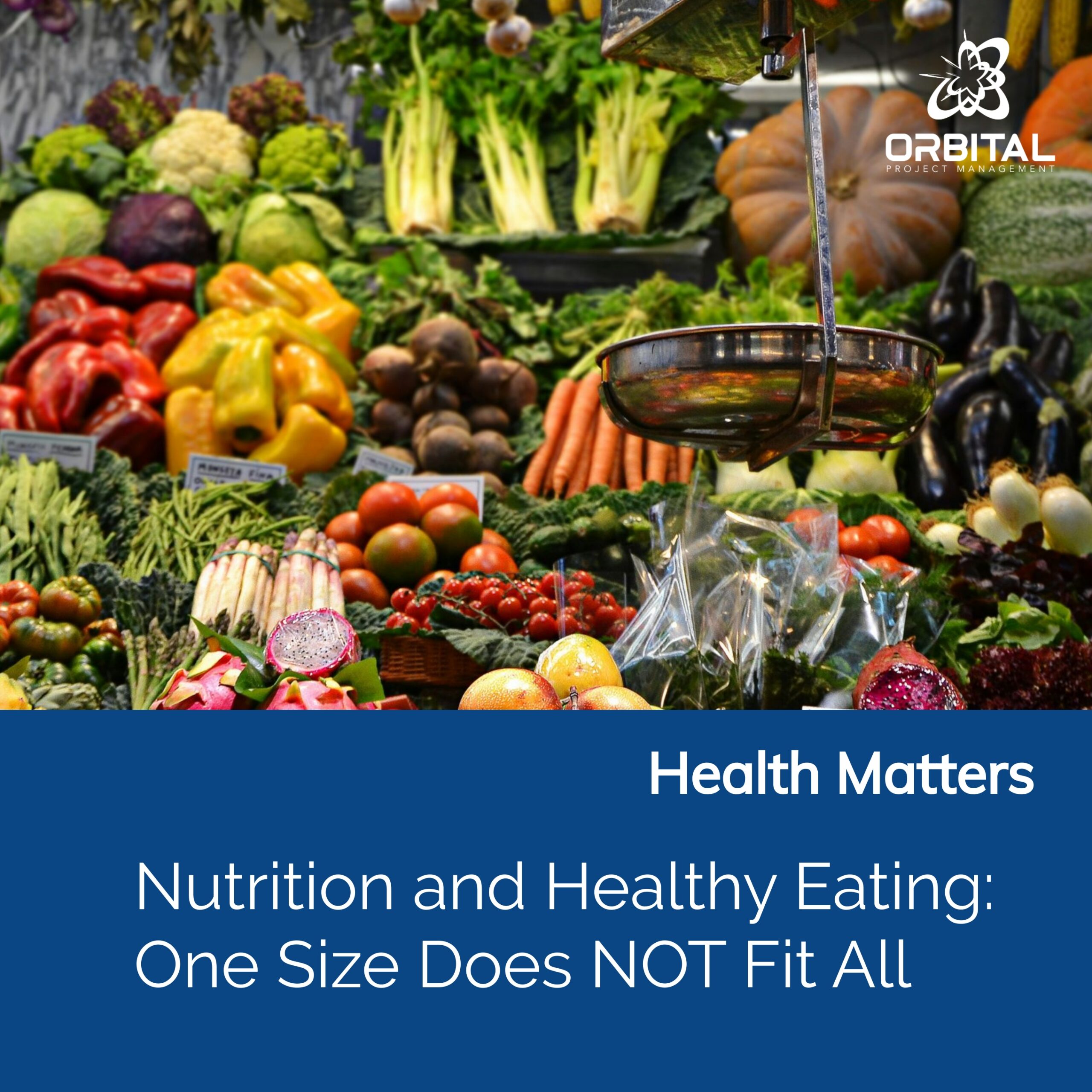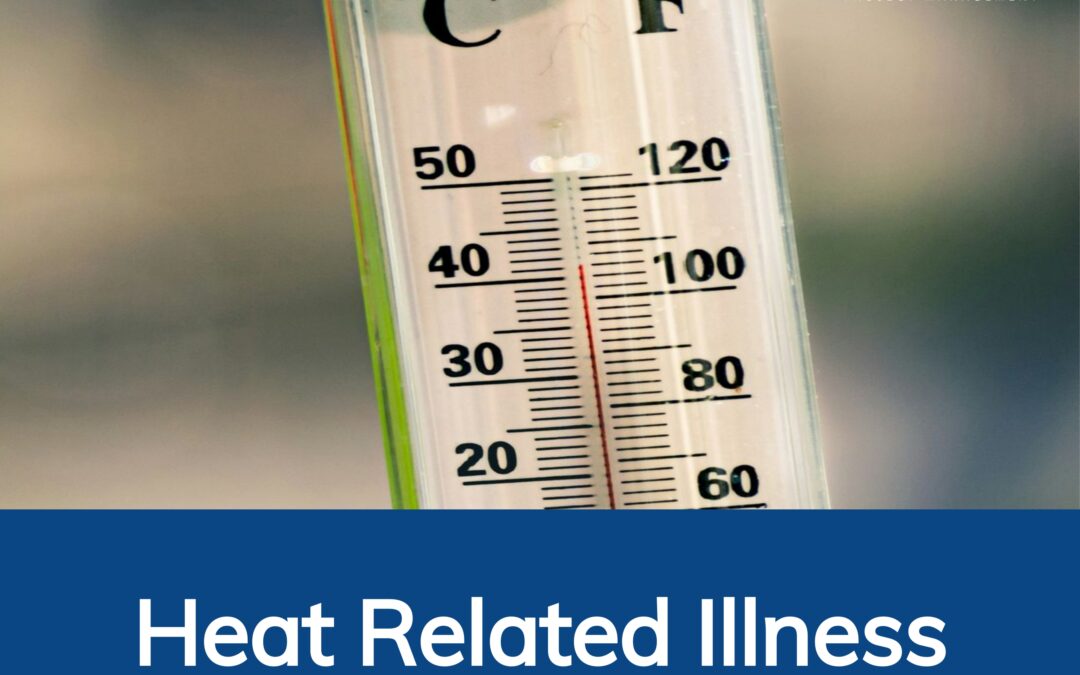By Kelly Warren, RN, BSN, STSC
First things first, I’m writing about wellness here.
Not body shapes or sizes. Not chasing the ideal image at any cost.
Just wellness.
And, like most things in life…One size does NOT fit all.
For our 5th installment of our Health Matters series, we’re diving into the realm of nutrition and how the ideas that surround “healthy eating” may not contribute to an individual’s personal wellness.
Striking a Balance
There is something to be said for lifestyle changes that are sustainable. For the most part, alterations that require a white-knuckle approach and self-induced psychological warfare aren’t going to make it for the long haul. Neither are changes that are imposed by someone other than yourself.
One of the most accurate statements I have ever read came from Elizabeth Gilbert back in 2014:
“I’ve never seen any life transformation that didn’t begin with the person in question finally getting sick of their own bull**!t.”
That goes for everything from relationships to job choices to…
Well, deciding what to eat for dinner tonight.
Good nutrition and the improved wellness it brings are goals that work best when you are ready to take responsibility for them…and for your actions that help or hinder you on the way to those changes. If you’re still looking for excuses or blaming others, you’re clearly not sick of your own “stuff” yet.
There comes a point where you must embrace the process instead of simply latching hold of the end goal. Wellness is a continuum, not a destination. And each improvement you make that increases wellness is something to be celebrated. (But maybe not with cake or alcohol. Just sayin.’)
The Tipping Point
Here’s the critical factor: Eventually, negative health changes that arise as a result of poor choices made over time will culminate in damage that cannot be undone. That tipping point typically comes when you least expect it if your body is really good at compensating.
While there may be signposts along the way:
- Rising blood pressure
- Increased fasting blood sugars
- Tight waistbands
- Shortness of breath
- Gastric reflux
- Chronic pain (especially in joints due to inflammation)
Some serious issues glide under the radar until it’s too late:
- Liver fibrosis
- Coronary artery stenosis
- Increased stroke risks
- Colon polyps
- Chronic kidney disease
You Are What You Eat…Sort of
While there are some obvious “good” and “bad” food choices that will impact everyone fairly equally, nutrition is personal.
Or at least it should be.
You are what you eat.
But someone else who eats the exact same diet may have different results than you. In case you haven’t heard it before: Life’s not fair.
As a nurse, I learned about different diets for various illnesses. And while there is some overlap in the realm of “healthy eating,” research and time have shown that people may require vastly different nutrition regimens and restrictions for their personal best wellness.
Know Thyself
If you’re one of those people with an iron stomach and no health issues, congratulations!
But, if you have kidney disease, familial cholesterol issues, diabetes, food allergies or sensitivities, or any other myriad health limitations, then part of your personal nutrition you must discover for yourself. A recommended diet can get you started, and you can adapt from there.
If I had a dollar for every diet plan I followed, from fads to physician-recommended ones, that all promised pristine health…
I wouldn’t be employed and writing this today. Because I would be on a permanent vacation with a hefty bank account.
While many people didn’t believe me along the way, I have weird food reactions. I can manage jalapenos, but not bell peppers. I can eat carne asada all day, but guacamole sends me into anaphylactic shock. Turns out, I have Mast Cell Activation Syndrome (a.k.a. MCAS). But I was many decades into bizarre food reactions before that was discovered. And I had to forge my own food choices path for many years. I invite you to do the same.
Overeating
Simply eating too much food (or too much of the wrong foods) may be the cause of excess weight. If weight loss is part of your nutrition wellness goals, take a look at how much food you’re consuming. If the volume is low, are the calories too high?
There are a number of tips for decreasing excess caloric intake:
- Drink a full glass of water before each meal
- Stop eating halfway through a meal and wait 5-10 minutes to see if you’re actually full
- Practice Intuitive Eating exercises
- Take smaller portions
- Don’t watch TV or have other distractions while eating
- Stop eating at a certain hour in the evening
These may work for you. They may not.
But if you’re “eating well” and still not losing weight, it may simply be that you have conditioned your body to take in excess calories that you don’t need. Try reducing them over time and see if you get results.
It’s Chemical
There’s something that Post Malone and I both know: It’s chemical.
While I just paid homage to the “extra calories” line of thinking, that is limited by what your body does with those calories. Personally, I can burn through fat and protein like nobody’s business. I’m talking insane caloric amounts of them. But give me a reduced-calorie diet of carbs and certain vegetables and my body will blow up like a balloon, retain water, and the scale will move in the wrong direction.
So, for many of us, the old adage of “calories in, calories out” doesn’t apply. Keeping a check on calories may be useful in some cases, but limited in its utility in others,
For some of us, it’s chemical.
I’m Not Alone, and Neither Are You
Have you heard about Terry Wahls and The Wahls Protocol? She reversed her severe multiple sclerosis by designing a limited paleo-type diet based largely on fat and protein. She went from wheelchair bound to biking several miles at a time. Guess what? It might not work for all MS patients. Because everyone has different factors that impact health and disease susceptibility. If you have MS and want to give it a try, go for it! If it doesn’t work for you, don’t despair. Keep trying other options.
There are people who thrive on ketogenic diets and those who cannot tolerate the higher fat. And while things like The Mediterranean Diet work well for some, others don’t do well on it. The bottom line: Stop expecting someone else’s diet protocol followed-to-a-T to be the magic bullet and start paying attention to how YOUR BODY responds. Make adaptations and alterations as needed.
For relatively healthy individuals, you may be able to measure wellness gains by your energy levels and how your clothing fits. For others with medical conditions, you may need repeated testing or other measures to determine if something is working in your favor for improved health.
If you follow a specific diet, get excellent results, and don’t struggle with feeling restricted, that’s awesome. Keep at it! This is not to deter you from following a diet that works for you. It’s just to let you know that if you’re in the group of nutrition misfits who can’t seem to find something that works, there are many others like you who are also struggling. Learn how to make your food choices personal and best tailored to your outcomes.
Where to Go from Here
Okay, so you’ve learned which foods create issues for you from bloating to reflux to rashes to…let’s not go there. Avoid them. But you’re not sure if you’re doing yourself any favors with lower fiber and higher protein? Talk to a specialist. Find one who fully understands your medical condition or who is open to hearing your personal experiences with food.
Consider having some testing done. If you have signs and symptoms of possible chronic illnesses, engage with a practitioner who can order some labs or imaging studies to get your baseline.
There are some tricky (and serious) issues to navigate if you already have organ involvement or take meds that limit your food options. Sometimes a nutritionist can help. Sometimes they can’t. Ask me how I know.
And sometimes, dietary needs are short-term. Perhaps you’re healing from a wound and need additional protein. Or you have been critically sick with blood sugars running high and need to cut back on carbs. Learn to be fluid with your nutritional needs. The more flexible you can be, the better.
Commit to doing well by yourself for the long haul, even if changes are slow to come.
Pay attention to your thoughts and words. See where you’re getting in your own way.
We Wish You Well(ness)
Above all, accept yourself where you are. That’s the best place to launch from on a nutrition journey. Self-loathing just gets in the way.
Figure out what steps come next for you. See a practitioner or join a nutrition community if that sounds like it may work in your favor.
When you hit a roadblock or an apparent failure, keep going.
Remember it’s a journey, not a destination.
Want Someone to Walk the Path with You?
Subscribe to The Nucleus and keep us coming to your inbox for some inspiration.






